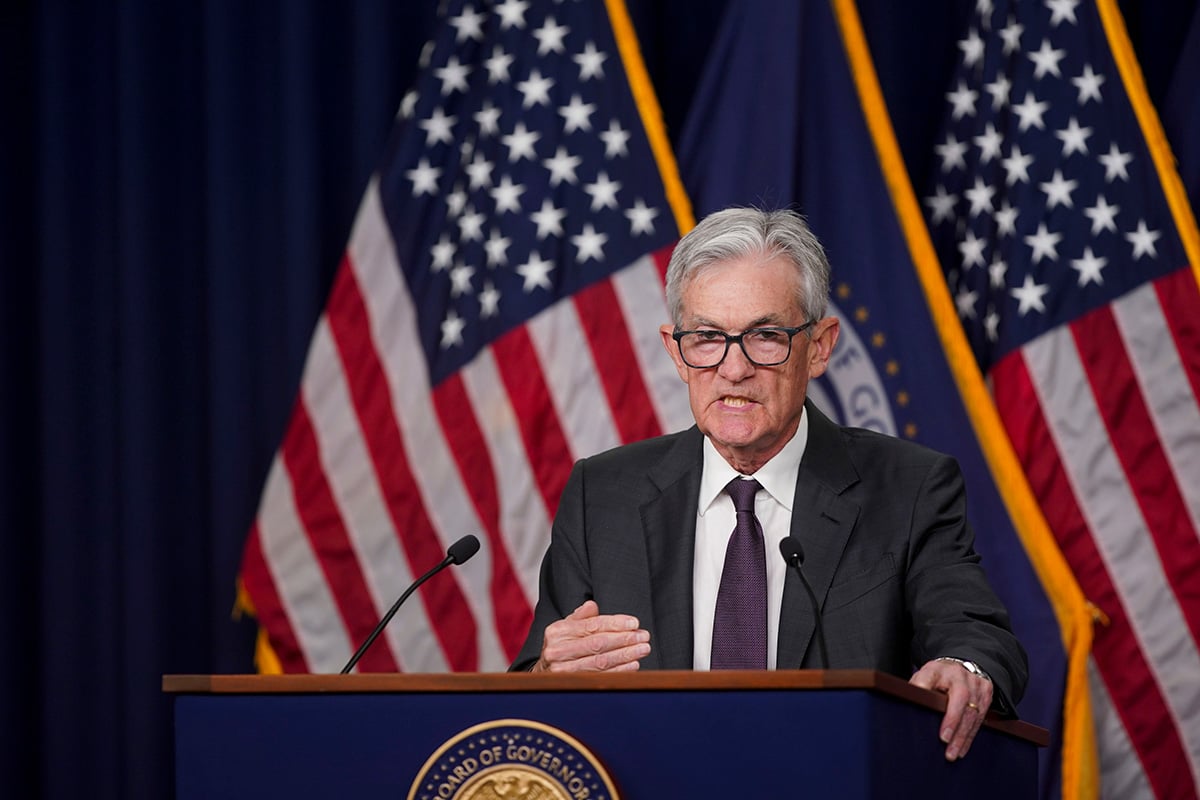Brazil's sovereign rating was cut to junk by Standard & Poor's, taking away the investment grade the country enjoyed for seven years, as President Dilma Rousseff's struggles to shore up fiscal accounts amid a faltering economy.
The country's rating was reduced one step to BB+, with a negative outlook, S&P said in a statement after markets closed. Brazil's largest U.S. exchange-traded fund tumbled 6.6 percent in late trading along with American depositary receipts for Petrobras, the state-controlled oil company.
The downgrade, and S&P's warning that another cut is possible, puts pressure on the economic team led by Finance Minister Joaquim Levy to win passage of measures that would shore up the country's fiscal situation by cutting spending or raising taxes. Rousseff has been unable to find support for her initiatives amid an investigation into corruption at the state- controlled oil company that allegedly occurred while she was its chairman, sending her popularity to a record low and generating calls for her impeachment.
“The downgrade could be a wakeup call but the political situation is so bad that it's difficult to resolve, so its a dark path ahead,” Daniel Weeks, the chief economist at Garde Asset Management, said from Sao Paulo. “Markets will take this as a negative, and it will probably drag down emerging markets at a global level.”
Brazil's government said in August it forecasts a fiscal deficit in 2016 of 30.5 billion reais ($7.9 billion), or about 0.5 percent of gross domestic product. That compares with a targeted surplus of 2 percent at the beginning of this year and a revised objective of 0.7 percent announced in July. The country's gross debt as a percentage of its economy climbed to 65 percent in July from 51 percent at the end of 2011.
“The political challenges Brazil faces have continued to mount,” S&P said in the statement accompanying its decision. “The negative outlook reflects what we believe is a greater than one-in-three likelihood of a further downgrade due to a further deterioration of Brazil's fiscal position.”
Because of internal rules, some institutional investors such as pension funds can't hold securities rated junk, which could lead to a selloff of Brazilian assets. Both Fitch Ratings and Moody's Investors Service rate the country investment grade, which may limit the immediate impact of S&P's move. S&P first increased Brazil's classification to investment grade in April 2008.
Brazil's real may extend a 30 decline that has made it the worst performing emerging-market currency this year, and also spur further weakness in other riskier assets, according to Ray Attrill, co-head of currency strategy at National Australia Bank Ltd. in Sydney. The real had climbed over the past two days after tumbling to a 12-year low on Sept. 4, when it slid to 3.8434 per dollar. A further drop of 4 percent would take it past the all-time low of 4.0040 per dollar reached in 2002.
“S&P downgrading Brazil to junk is a negative development for the real that came after the local market close, so that might be a negative force in EM more broadly today,” Attrill said Thursday.
Brazil canceled a weekly auction of local government debt this month for the first time in more than a year and a half as a selloff in the country's assets drove up borrowing costs, while its bond risk reached a six-year high this week as measured by credit-default swaps. The yield on its benchmark 10- year debt has climbed more than 2 percentage points since June 30 and reached 15.08 percent last week. The Ibovespa stock gauge is down 35 percent this year in dollar terms, the fourth-worst performance among 93 global benchmarks tracked by Bloomberg.
Petroleo Brasileiro SA's American depositary receipts fell 8.6 percent to $4.65 as of 7:50 p.m. in New York. The iShares MSCI Brazil Capped ETF sank 6.6 percent to $21.94.
“It came a bit earlier than expected,” Alberto Ramos, the chief Latin America economist for Goldman Sachs Group Inc., said in an interview. “It is partly priced in, but not entirely.”
Latin America's biggest economy now stands at the same rating level as Russia, Hungary and Indonesia, according to S&P.
Bloomberg News
Complete your profile to continue reading and get FREE access to Treasury & Risk, part of your ALM digital membership.
Your access to unlimited Treasury & Risk content isn’t changing.
Once you are an ALM digital member, you’ll receive:
- Thought leadership on regulatory changes, economic trends, corporate success stories, and tactical solutions for treasurers, CFOs, risk managers, controllers, and other finance professionals
- Informative weekly newsletter featuring news, analysis, real-world case studies, and other critical content
- Educational webcasts, white papers, and ebooks from industry thought leaders
- Critical coverage of the employee benefits and financial advisory markets on our other ALM sites, PropertyCasualty360 and ThinkAdvisor
Already have an account? Sign In Now
*May exclude premium content© 2025 ALM Global, LLC, All Rights Reserved. Request academic re-use from www.copyright.com. All other uses, submit a request to [email protected]. For more information visit Asset & Logo Licensing.





